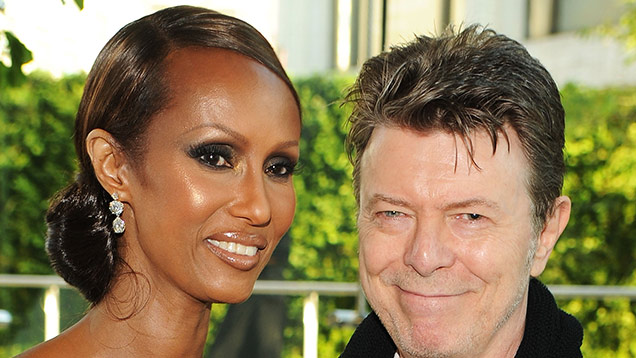Bobbyisms: David Bowie, earthling
 CREDIT: DIMITRIOS KAMBOURIS / GETTY IMAGES ENTERTAINMENT / THINKSTOCK
CREDIT: DIMITRIOS KAMBOURIS / GETTY IMAGES ENTERTAINMENT / THINKSTOCK"You know, I'll be free just like that bluebird," Bowie promised. "Now ain't that just like me?" David Bowie, Jan. 8, 1947 - Jan. 10, 2016.
I write about random things a lot. I write a lot about random things. I’m having a tough time; it’s been just over a week since David Bowie passed, but it seems as more time goes by, more heart–wrenching details about the man and his passing come to light.
Of course, we now know that his new album Blackstar, covered on page seven by Nick Reyno, and its accompanying music videos were meant as a parting gift and message to us from Bowie, a glimpse into how he prepared for his passing.
It’s been so long since we’ve seen him struggle that it might be easy to forget how strong and brave a person he was, qualities that would define him to the end. Hailing from a tough area in London, Bowie first inspired us by being unapologetically true to himself. He identified as gay and exuded androgyny during a difficult time in Britain and will be forever celebrated for his integrity.
Whether you were introduced to his music or first came to know him through his film roles, like the cunning Goblin King Jareth from the 1986 classic Labyrinth or his turn as the mysterious Nikola Tesla in Christopher Nolan’s thrilling The Prestige from 2006, it was hard not to be struck by his presence. While no two fans are alike, with unique and fond memories of their introduction to Bowie and his work, all agree that the world has lost a truly warm, caring and fiercely intelligent man.
If you haven’t been listening to Bowie’s catalogue of albums this past week, you should start. A lot has been written about them lately, many articles making great cases for the importance of much of his work. However if you’re looking for a place to start, consider these selections plucked from across his career.
Heroes – 1977
That Bowie’s so–called ‘Berlin Trilogy’ of albums is much–revered in music history as fairly common knowledge, but there is also undeniable cultural and historical significance preserved there as well.
Co–produced by Tony Visconti, this trio of records followed a time of artistic tumult for Bowie, whose burgeoning career placed different demands on him in Europe and the U.S.
The three records, Heroes was released between Low (1977) and Lodger (1979), were collaborations with Brian Eno, inspired by sights and stories of the Berlin Wall, which famously divided the east and west sections of the city from 1961 to 1989. The title track is perhaps Bowie’s most famous single, and its simple message of love in the time of oppression will be relevant forever.
Let’s Dance – 1983
Early in the ’80s, Texas–born guitarist Stevie Ray Vaughan played a fiery set at the Montreux Jazz Festival with his band, Double Trouble. The trio was not signed to any label, but their performance made a name for them and gained some important attention. Fast forward to 1982 and Vaughan receives a call from Bowie, who invites him to play lead guitar on his coming album.
There’s a better–than–good chance that Let’s Dance features more of the radio–friendly Bowie jams you heard growing up than any other and Bowie recognized Vaughan’s contribution as being a big part of the record’s success. Interestingly, Vaughan turned down an opportunity to tour with Bowie in support of Let’s Dance, instead releasing his own solo debut later in the same year.
Earthling – 1997
In 1997, Bowie celebrated his 50th birthday with a concert at Madison Square Garden in New York, a massive event featuring guest performances by era–spanning rock icons like Dave Grohl and the Foo Fighters, Billy Corgan, Sonic Youth, Frank Black, Robert Smith and Lou Reed. The way that he so naturally commanded the stage and brought together such generational icons was indicative of his stature as a living legend, a performance and milestone like no other.
A few short weeks later, Bowie released Earthling, an experiment in marrying his sophisticated rock style with pumping jungle music and drum n’ bass. He considered it a synthesis of the American and European styles and made comparisons to his previous work at the time, but the record marked some incredible changes in his songwriting process, and offered the first glimpses of an artist concerned about how much time he had left.
“I guess the common ground with all the songs is this abiding need in me to vacillate between atheism or a kind of Gnosticism,” he told Q Magazine upon the release of Earthling in February 1997. “What I need is to find a balance, spiritually, with the way I live and my demise. And that period of time — from today until my demise — is the only thing that fascinates me.”
Is it so surprising, then, that such an artist and creator would craft such a statement to mark his passing and express his gratitude to his fans. “Look up here, I’m in Heaven,” he sang in “Lazarus” before we knew what it meant, offering a gentle solace in the idea that he knew exactly what would happen, and that it would all go according to his plan.
“You know, I’ll be free just like that bluebird,” he promised. “Now, ain’t that just like me?”
For more of the latest music news, album streams and gigs coming to London, add @fsu_bobbyisms to your Twitter timeline. Fun fact: Bowie retired from touring following the end of his A Reality Tour, which stopped here in town. The final Canadian date of the tour happened at the John Labatt Centre in May 2004, proof that even London has a little Bowie in its DNA. I’m out of words.














